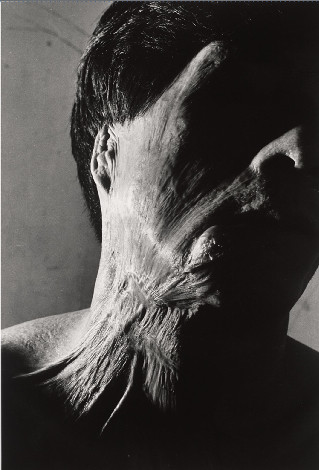Shomei Tomatsu
Shomei Tomatsu was born in 1930 and was raised in a city named Nagoya, Japan. In the 1950's Shomei took tender photos of Japan. Shomei Tomatsu started taking dark and meaningful photos in the 1960's after the war. His style turned dark, photos of diseased and suffering people from the atomic bomb took place of his gentle earlier years of photography. His style turned into a documentary expression of post war. Shomei Tomatsu’s pictures showed the many suffering people from the atomic bomb. He took pictures of people that were affected through skin disease and objects that have been melted or somehow destroyed. His pictures have a sad story behind them which gives you a depressing feel from the images. Although Shomei Tomatsu took unique post war photos, there were also others that took a similar approach to their photography. Photographers like Dorothea Lange shared this sense of struggle and hardships just like Shomei Tomatsu did.

Another photographer that deals with the same war struggle as Shomei Tomatsu, is Mathew Brady (1822-1896). Mathew Brady revealed the results of war by taking pictures of the diseased. These pictures were of fields covered in the bodies of young soldiers. For me his pictures of soldiers give off an empty, sorrowful vibe. The graininess of his pictures add a dark, deathly feeling to his photos.


Another photographer that deals with the same war struggle as Shomei Tomatsu, is Mathew Brady (1822-1896). Mathew Brady revealed the results of war by taking pictures of the diseased. These pictures were of fields covered in the bodies of young soldiers. For me his pictures of soldiers give off an empty, sorrowful vibe. The graininess of his pictures add a dark, deathly feeling to his photos.

There were many photographers that took similar pictures to Shomei Tomatsu, but his pictures stood out to me. They are unique because he doesn’t show what everyone would expect from a post war photo. He didn’t just take pictures of bodies and grieving citizens. He took pictures of the effect that war caused, not just immediate effects but long-term effects. Not effects that one could overcome in a few years but effects and hardships that would stay with that person until the day they die.



No comments:
Post a Comment